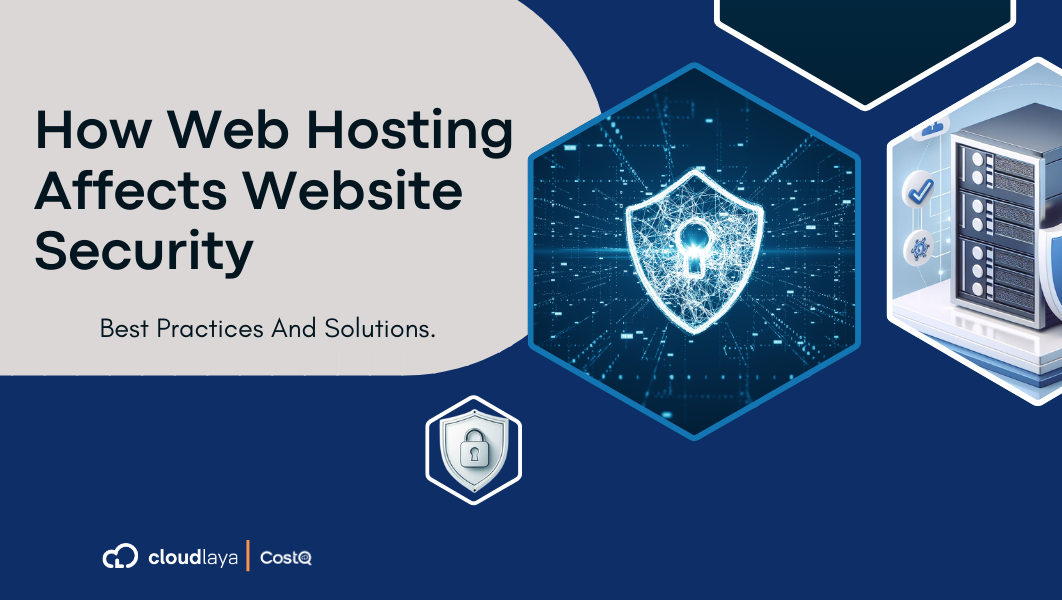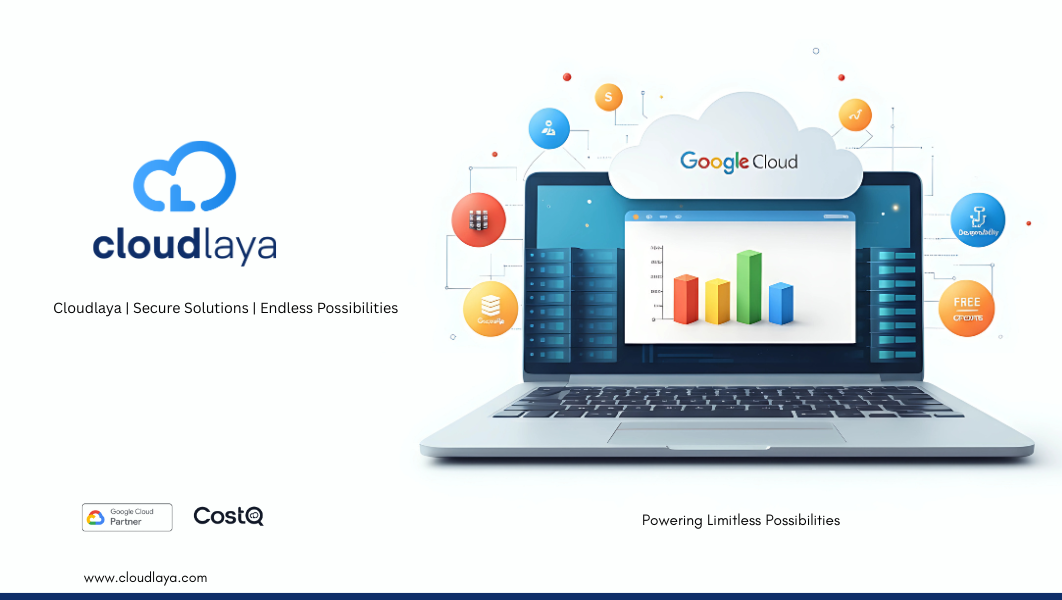
How Web Hosting Affects Website Security: 6 Best Practices and Solutions.
Table of Contents
How Web Hosting Affects Website Security: 6 Best Practices and Solutions.
Introduction
More than ever, websites are at risk of being compromised which is why security is needed now more than ever in this digitalized world. Individuals and businesses alike must protect their data and be vigilant, as a breach could put their assets, reputation, and user data at risk. Web hosting is the end point in which organizations can defend against constantly evolving cyber threats. By using adequate security practices and the best hosting services, cyber breaches can be capped. This guide will discuss practical solutions to maintain the security of your website while analyzing the relationship between web hosting and security.
1. Why Web Hosting Can Influence Security Issues?
Your provider is responsible for hosting server infrastructure, therefore malicious attacks may be easy if proper security perimeters are not in place. A secure host provides:
- Safe perimeter firewalls.
- Firewalls for safer server access.
- Encryption with SSL for sensitive data.
- Prevention of DDoS attacks for system availability.
Without proper security features, your website may be susceptible to malware and hackers.
2. Chossing a Secured Web Hosting Provider.
Identifying a secured hosting provider is crucial. A good host must guarantee the best protection from online phishing attacks while meeting the speed and performance requirements. Many website owners utilize cheap hosting companies without checking all necessary security requirements, thus creating loopholes. You need to search for the following items to keep your website secure:
Identifying a secured hosting provider is equally important as finding a cheap reputable hosting service. Look for these patterns:
Your website’s infrastructure is provided by your web host, and insufficient hosting security can expose your website to intrusions. A secure host provides:
- Firewalls to prevent unwanted access.
- Safe server setups.
- SSL certificates for data encryption.
- DDoS defence to avoid interruptions.
Your website could be a prime target for malware and hackers if your hosting company does not have these security features.
2. Choosing a Secured Web Hosting Provider.
It’s crucial to pick a secure hosting company. In addition to speed and performance, a trustworthy host guarantees robust security protocols to shield websites from online attacks. When selecting a hosting company. Many website owners overlook security, which can lead to weaknesses. To keep your website safe, look for these features:
It’s crucial to pick a secure hosting company. Keep an eye out for these characteristics:
- a) Server Security
A quality host ought to provide:
- Frequent patches and security updates.
- Tools for detecting and eliminating malware.
- Data recovery through automated backups.
- b) SSL Certificates
Data is encrypted by SSL certificates to prevent unwanted access. Free SSL certificates are offered by many hosting companies.
- c) Data Backup Policy
Regular backups enable you to recover your website in the scenario of a random data loss or cyberattack.
- d) 24/7 Customer Support.
Security problems can be promptly fixed and downtime reduced with a responsive support staff.
3. Best Practices for Enhancing Website Security.
Even with a secure hosting company, you can improve the security of your website by taking these extra precautions:
- a) Maintain Software Updates
Software that is not up to date is a weak point in security. Updates to your CMS, plugins and themes always need to be performed in order to prevent security gaps. Hackers can exploit software that lacks regular updates to patch security vulnerabilities.
- b) Make use of two-factor authentication (2FA) and strong passwords.
In compare with weak passwords, passwords with Power 2 and 2FA are much more secures against unauthorized logins. Simple, easy to guess and reused passwords should be avoided as well.
- c) Keep an eye on website activity
Using plugins, security tools, and monitoring applications, help in identifying and stopping harmful threats, preventing any damage from taking place.
- d) Turn on a Web Application Firewall (WAF).
A WAF prevents malicious traffic from coming through while also defending an attacked site from threats such as SQL injection and cross-site scripting (XSS).
4. Easily Prevented Web Hosting Security Issues
- a) DDoS Attacks
A DDoS (Distributed Denial of Service) attack occurs when a server is flooded with traffic, leading to downtime. Prevention strategies include:
- Selecting a host that protects against DDoS attacks.
- Using a content delivery network (CDN) to distribute traffic evenly.
- b) Malware Infections
Malware is capable of wiping or stealing sensitive information, as well as shutting down websites. Prevent infections by:
- Scanning your website for malicious code on a regular basis.
- Not using so-called nulled or pirated plugins and themes.
- c) SQL Injection Attacks
When a web form or URL is poorly programmed, it leaves a open invitation for hackers to corrupt the database. Block the chances of SQL injections by:
- Putting in place parameterized queries.
- Using input validation procedures.
- d) Phishing And Social Engineering
Hackers can gain access to sensitive credentials through fake emails and misleading login pages. Safeguard your website by:
- Training employees on the dangers of phishing.
- Putting in place security plugins that can identify phishing activities.
5. Types of Hosting and Their Associated Security Risks
Different host types provide different security levels. Here is their comparison:

- a) Shared Hosting
- Advantages: Cheaper and easy to use.
- Disadvantages: Very insecure due to many users and sites being hosted on the same server.
- Recommendation: Pick a host with good isolation and protection policies.
- b) VPS Hosting
- Advantages: Better security than shared hosting and there are guaranteed resources.
- Disadvantages: Need to have some technical skills to set the protection within the host.
- Recommendation: Needs firewalls and other security precautions. Needs scheduled maintenance.
- c) Dedicated Hosting
- Advantages: Can set any level of security required.
- Disadvantages: Costly and needs high level of server skills.
- Recommendation: Employ an IT security person, if required.
- d) Managed Hosting
- Advantages: Provider manages, security, updates and backups setting.
- Disadvantages: Higher cost than basic hosting solutions.
- Recommendation: Best for companies who are in need of high security.
6. Extra Security Procedures
- a) Use HTPPS
- Every page should protect user information through encryption via HTTPS.
- b) Restrict Access to Certain Files
- To avoid unauthorized alterations, access to specific sensitive files should be limited.
- c) Enable Safe User Profiles
- To mitigate threats, separate users to have different roles and permissions.
- d) Conduct Security Audits Often.
- Ordinary audits help to find and fix security gaps before they become a problem.
Conclusion
Choosing a reliable web hosting partner is pivotal for your cybersecurity. A secure host will provide add-on features such as firewalls, SSL Certificates, DDoS protection, and backups. However, not everything lies on the provider’s shoulders—website owners also have to use basic security measures like firewall protection, strong password settings, software updates, etc.
Cybersecurity breaches are endless, so security is quite literally a never-ending journey. Preventing unauthorized access and detection will require regular checks, security audits, and knowledge of new threats. Security should always be a central factor in your decision-making process whether you choose shared, VPS, dedicated or managed hosting solutions.
This guide allows you to mitigate the chances of falling victim to a cyberattack, maintain your website’s information integrity, and earn user’s trust. Besides, focusing actively on website security features will enable you to build a strong reputation online and help achieve long-term goals.

As a seasoned DevSecOps Consultant, I specialize in ensuring the reliability, scalability, and security of cloud infrastructure and applications that are crucial for my clients’ success.


